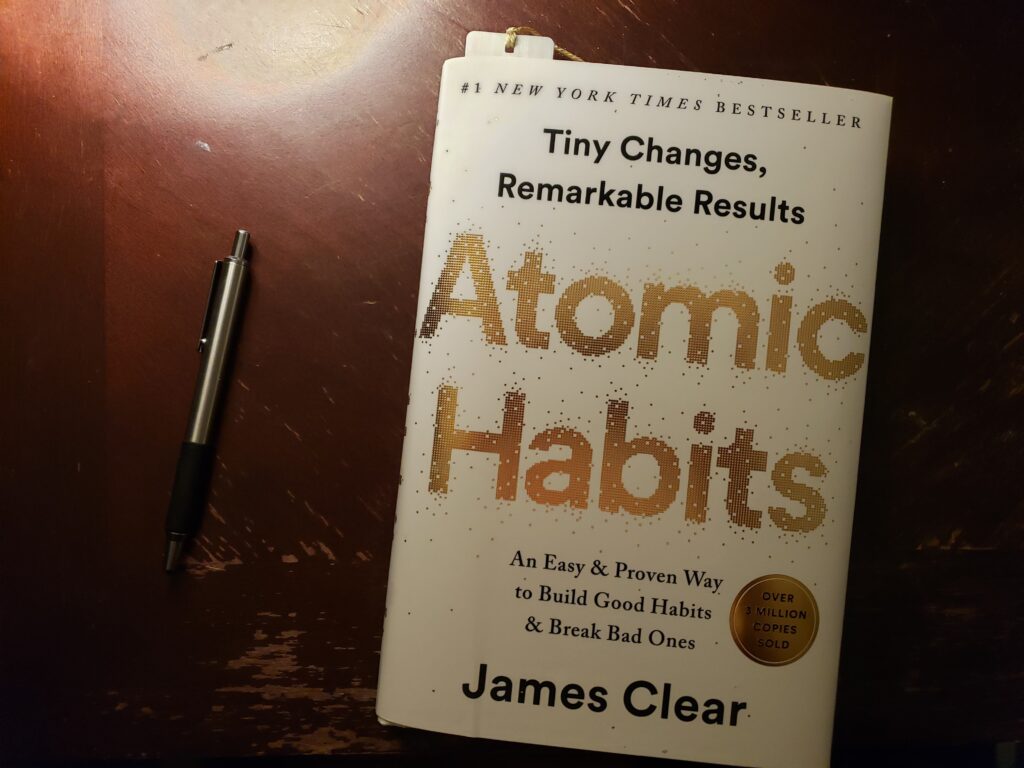I’m not a morning person. I wasn’t always the type of person who jumped out of bed in the morning with enthusiasm. Waking up early used to be a real struggle for me. Back when I worked as a programmer, I used to burn the midnight oil quite often. I would stay up until 2 or 3 in the morning, thinking I was at my most productive during those late-night hours. I believed my creativity was at its peak when the rest of the world was fast asleep.
Now, when I talk to others about building good habits, they often bring up the same arguments in favor of being a night owl. They say that’s when they have the most energy and get their best work done. And I get it, I really do. I used to think the same way.
But here’s the truth: I wasn’t actually being as productive as I could have been. I was simply justifying what was easy for me, not what was truly best. However, thanks to the wisdom I gained from reading Robin Sharma’s book The 5 AM Club and James Clear’s Atomic Habits, my routine has undergone a major transformation.
Now, without fail, I rise every day at 5 AM, even on my days off. I start my day by carving out an hour to engage in activities that fuel my personal growth and give my life meaning. During this power hour, I immerse myself in reading, studying, and meditation. I dive into subjects like psychology, effective communication, leadership, and managing mental health issues. These topics fuel my curiosity and keep me on a path of constant learning and development.
I also make sure to keep up with the latest market news by following trusted sources like The Wall Street Journal and Barron’s. If you want to find financial success, it’s important to set aside a small portion of each paycheck and actively work on growing your wealth. Then, all you have to do is establish daily habits that help you effectively manage it.
After my power hour, it’s time for my wife and me to hit the gym. Exercise has had a remarkably positive impact on both of us. It’s not just about physical fitness; it influences other areas of my life too. I find that my ability to concentrate improves, my energy levels skyrocket, and my mood becomes more uplifted. These benefits spill over into my relationships as well. Going to the gym has become a special bonding time for my wife and me. It’s our chance to focus on our personal growth and well-being while strengthening our connection. It’s incredible how dedicating time together for self-improvement has made a real difference.
There was a time when my back pain would often hold me back from playing with my children. When my oldest daughter would want to jump on my back playfully, I would push her away because of the discomfort. But since developing this habit of regular exercise, I can now embrace those playful moments and enjoy them to the fullest. It’s amazing how taking care of ourselves can improve not only our physical well-being but also our ability to fully engage in the joys of life with our loved ones.

The Building Blocks of an Abundant Life
I consider myself incredibly fortunate and grateful for the life I have, and building healthy habits has been one of the main reasons behind it all. Habits are the building blocks of our daily routines, and our routines shape our overall lifestyle. They are the foundation that determines how far we can go in life.
Sometimes people come to me seeking financial advice, particularly when it comes to investing. But when I mention that true financial success lies in building habits, transforming our lifestyle, and focusing on developing our mindset, their interest suddenly fades away. They’re hoping for quick stock tips, an easy fix. Unfortunately, it doesn’t work that way.
The core concept that has reshaped my life is what James Clear calls Atomic Habits in his book of the same name. The idea is simple: Instead of trying to create monumental habits all at once, which can be really tough to sustain, start with small, manageable habits. Once you’ve established these tiny habits, you can gradually expand and grow them into something bigger.
The most crucial part is holding onto the habit once it’s established. For instance, there are days when I feel too tired from my work schedule to handle a full workout. On those days, I still make the effort and go to the gym, do just one or two exercises, and then return home. Keeping the habit alive over the long term is far more important than sticking to a perfect workout routine on any single day.

Tiny Changes that Lead to Huge Transformations
Building atomic habits means making small, gradual changes in your behavior that add up over time and lead to significant personal growth and positive transformation. Here are some important principles and strategies for building atomic habits:
Start small: Taking Manageable Steps. Atomic habits are about taking small, manageable steps. Instead of trying to change everything at once, break your goals down into small actions. For example, if you want to exercise regularly, start with just five minutes of exercise each day.
Be specific: Clearly Defining Goals and Actions. Clearly define what you want to achieve and create specific action steps. When goals are vague, it’s harder to take action. For example, instead of saying, “I want to read more,” be specific and say, “I will read for 15 minutes every night before bed.”
Connect habits to triggers: Creating Strong Associations. Habits often occur in response to specific cues or situations. By identifying these triggers and linking them to your desired habits, you can create strong associations. For instance, I read 58 books last year, by simply reading ten pages each time an episode of television ends prior to allowing the next episode to start.
Establish a routine: Consistency is Key. It’s all about establishing a daily or weekly routine that includes the habits you want to cultivate. When you assign specific times for these habits, they become a natural part of your life. If you find it challenging to stick to your routine, it might be because your habit is too demanding. In that case, it’s crucial to make it smaller or easier. Remember, the key lies in consistency, so finding a manageable approach is paramount.
Track your progress: Monitoring Growth and Accountability. Keep a record of your habits and monitor your progress. This helps you stay accountable and gives you a visual representation of how you’re improving over time. You can use habit trackers, journals, or apps to keep track of your habits.
Focus on your identity: Aligning Habits with Who You Want to Be. Meaningful transformations stem from aligning your habits with your core identity. Instead of fixating solely on the end outcome, consider the kind of person you aspire to be. Pose the question, “What would someone who has achieved this goal do?” and begin embodying those behaviors. Moreover, think of your habits as expressions of your identity, not just actions. I’m not simply going to the gym; I am an athlete. I’m not merely reading books; I am a reader. By anchoring your habits in your sense of self, you reinforce your desired identity and empower lasting change.
Use positive reinforcement: Celebrating Small Victories. Reward yourself for practicing your habits. Celebrate small victories along the way to reinforce positive behavior. It can be as simple as treating yourself to something enjoyable or acknowledging your progress with a pat on the back.
Embrace failure as a learning opportunity: Failing forward. Setbacks and mistakes are normal when building habits. Instead of getting discouraged, see them as chances to learn and adjust your approach. Reflect on what caused the setback and find strategies to overcome it in the future.

Gradual Progress for Lasting Change
I recently came across a fascinating story from a man who told of his journey into investing. Over a span of about seven years, he consistently put small amounts of money into a brokerage account and invested it wisely. What made his story even more interesting was that he actually kept track of the time he spent studying the stock market, researching economic trends, and developing his trading strategy. This allowed him to calculate his earnings in terms of an hourly wage.
In his first year, he made around 50 cents per hour. This is the point where many people would give up, thinking it’s not worth their time. He chose to keep going. Each year, he continued his contributions, built on the gains from the previous year, and spent less time researching. Once he established a solid foundation, he didn’t need to devote as much time to maintenance. After just seven years, he was earning more from his investments than from his actual job that was funding these investments.
As an aside, this story reminds us of the fact that it’s not about how much money you make, but rather about what you do with the limited resources you do have available.
The way he experienced minimal gains at the start and then saw exponential growth years later is a common pattern in habit building. This is why it’s crucial to maintain a habit over a long period of time, rather than going all out in a single instance. Consistency outweighs any one-time effort. Let’s take the example of someone who goes to the gym five days a week for five years straight. They will achieve far greater results than someone who does intense workouts for a month and then loses steam. Consistency is the key.
Remember, building atomic habits is a gradual process that emphasizes consistency and continuous improvement. By applying these strategies and staying committed to your habits, you can bring about positive changes and achieve your goals. To quote James Clear from Atomic Habits, he says, “It’s easy to think that big achievements require big moments, but it’s the small improvements we make every day that truly count.”

